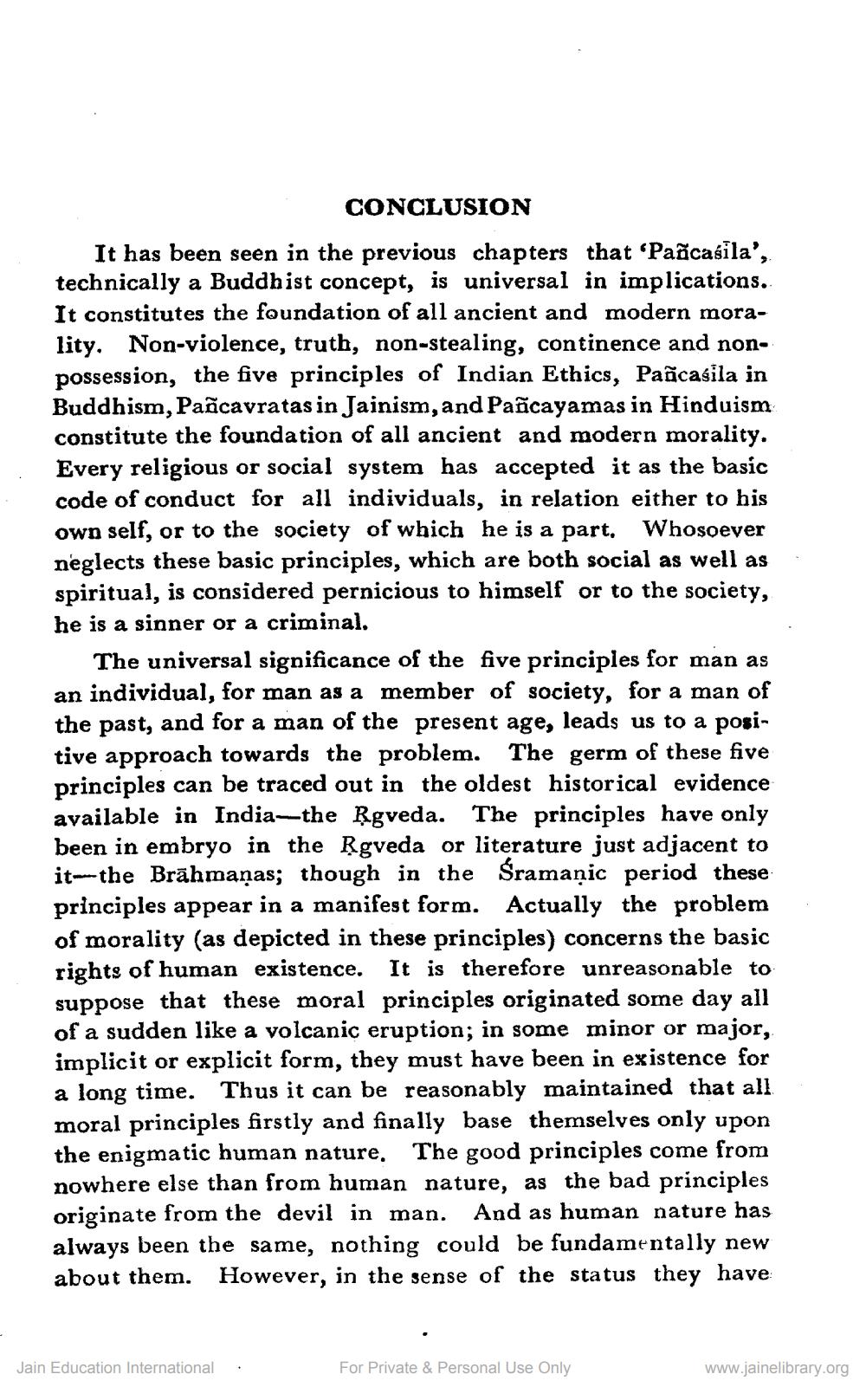________________
CONCLUSION
It has been seen in the previous chapters that 'Pancasila', technically a Buddhist concept, is universal in implications. It constitutes the foundation of all ancient and modern morality. Non-violence, truth, non-stealing, continence and nonpossession, the five principles of Indian Ethics, Pancasila in Buddhism, Pañcavratas in Jainism, and Pañcayamas in Hinduism constitute the foundation of all ancient and modern morality. Every religious or social system has accepted it as the basic code of conduct for all individuals, in relation either to his own self, or to the society of which he is a part, Whosoever neglects these basic principles, which are both social as well as spiritual, is considered pernicious to himself or to the society, he is a sinner or a criminal.
The universal significance of the five principles for man as an individual, for man as a member of society, for a man of the past, and for a man of the present age, leads us to a positive approach towards the problem. The germ of these five principles can be traced out in the oldest historical evidence available in India-the Ṛgveda. The principles have only been in embryo in the Ṛgveda or literature just adjacent to it-the Brahmanas; though in the Śramanic period these principles appear in a manifest form. Actually the problem of morality (as depicted in these principles) concerns the basic rights of human existence. It is therefore unreasonable to suppose that these moral principles originated some day all of a sudden like a volcanic eruption; in some minor or major, implicit or explicit form, they must have been in existence for a long time. Thus it can be reasonably maintained that all moral principles firstly and finally base themselves only upon the enigmatic human nature. The good principles come from nowhere else than from human nature, as the bad principles originate from the devil in man. And as human nature has always been the same, nothing could be fundamentally new about them. However, in the sense of the status they have
Jain Education International
For Private & Personal Use Only
www.jainelibrary.org




